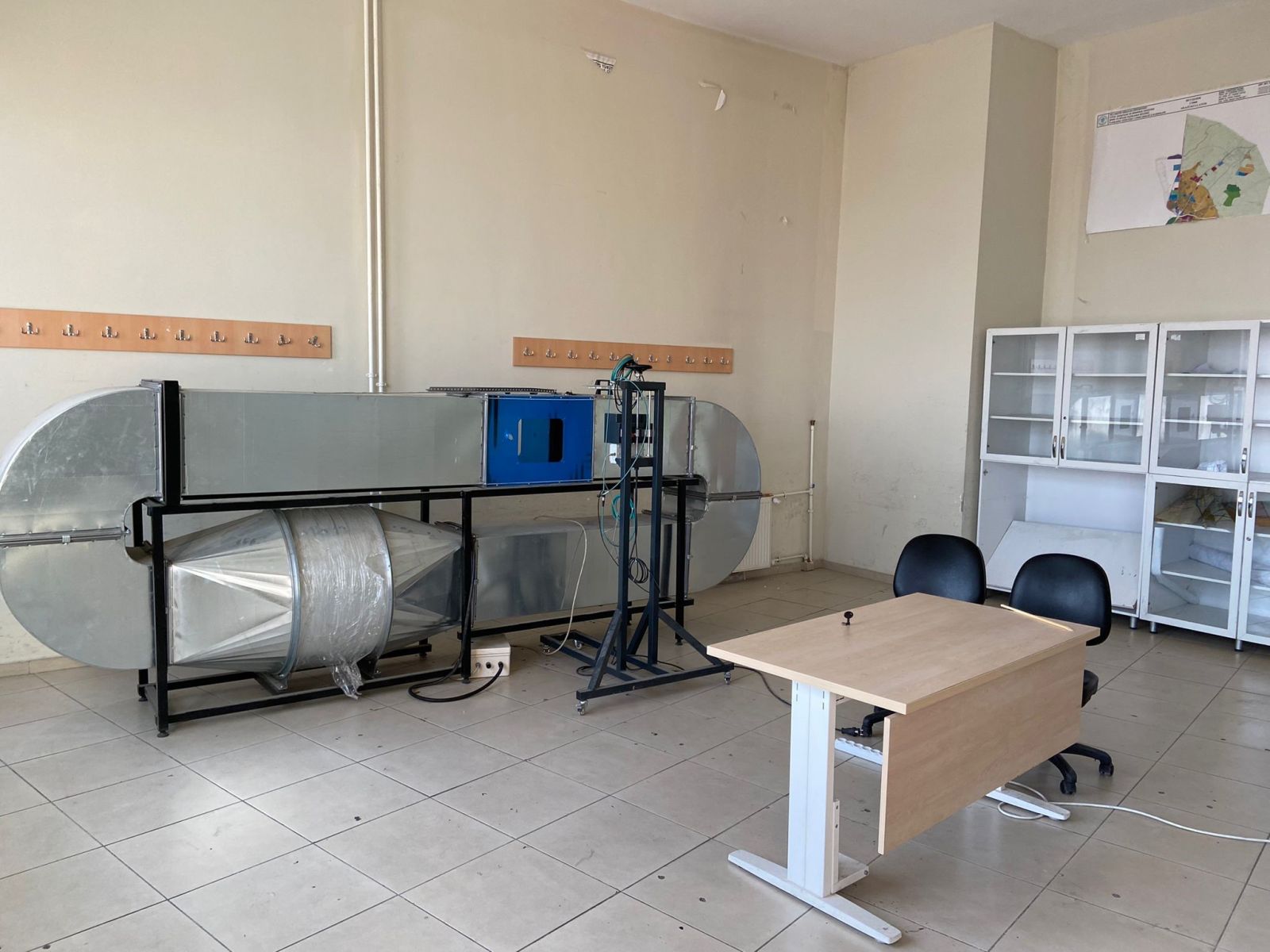.jpg)
Department Laboratories are equipped with the following laboratories, which are used in both undergraduate and graduate education, as well as for the development of various research projects: 1-Automatic Control Laboratory 2-Flight Theory Laboratory 3-Computational Fluid Dynamics and Wind Tunnel Laboratory 4-Composite Materials Laboratory 5-Engine Testing Laboratory 6-Simulation Laboratory

Completed Projects: 6 TÜBİTAK 2209 A-B projects, 2 BAP research projects, 2 TUSAŞ Lift UP projects, 2 TEKNOFEST projects, and 1 METU VTOL project. The Automatic Control Laboratory at the Department of Aeronautical Engineering, Necmettin Erbakan University, is designed to support the practical components of courses such as system dynamics, automatic control, flight mechanics, and flight dynamics—topics that are of critical importance in the field of aviation and aerospace sciences. It serves both undergraduate and graduate education and research activities. Within our laboratory, various research studies are conducted, including two graduate-level BAP research projects, multiple TÜBİTAK 2209A and 2209B projects, and projects under the TUSAŞ Lift UP initiative. The laboratory also supports practical work related to national and international competitions such as TEKNOFEST and the METU VTOL project.

Completed Projects: Model aircraft construction activities are carried out with first-year students. In the Flight Theory Laboratory, undergraduate students participating in national and international competitions such as TEKNOFEST, METU VTOL, and TÜBİTAK UAV carry out the practical components of their projects. In addition, simulation-based training is conducted for flight simulation and UAV piloting.

Completed Projects: 1 TÜBİTAK 2209-A project, 2 Lift UP projects, and 1 TEKNOFEST project. Due to the large size of aircraft and other aerial vehicles used in practical applications of aeronautical engineering, it is often not feasible to conduct full-scale ground tests. Therefore, wind tunnels—designed to simulate the flight conditions of scaled-down model aircraft—are used to determine aerodynamic flow characteristics such as drag, lift, thrust, and moment coefficients. The experimental results obtained from these tests can be used to estimate the aerodynamic forces experienced by prototype aircraft under real-world conditions. Moreover, in order to accurately simulate the effects of three-dimensional and turbulent flow structures that occur during flight, computational fluid dynamics (CFD) models need to be validated using experimental data from wind tunnel testing. In our Computational Fluid Dynamics and Wind Tunnel Laboratory, created for aerodynamic research within the Aeronautical Engineering Department, both experimental and numerical studies are conducted to mutually validate each other and to determine aerodynamic forces under realistic conditions. In this context, research and application studies are carried out on topics including: UAV and SIHA (armed UAV) models Munitions (rockets, missiles, torpedoes, etc.) Rotor aerodynamics Airfoil and rotor blade design and analysis Flow control systems Wake interactions of wind turbines Wind farm simulations
Completed Projects: 3 TUSAŞ Lift UP projects, 1 TUSAŞ Lift UP Plus project, and 3 BAP research projects. In this laboratory, our faculty members and students work on the production and development of nanocomposites aimed at enhancing specific properties of materials, such as thermal resistance and mechanical strength. In addition, student competition teams design and manufacture components for unmanned aerial vehicles (UAVs).
Completed Projects: 1 METU VTOL project The Engine Testing Laboratory within the Department of Aeronautical Engineering is a dedicated 45-square-meter space reserved entirely for student use. Under the supervision of the responsible faculty member, students are allowed to carry out their work during office hours in this lab. In this space, students conduct all types of analysis, calculations, manufacturing, and testing for the UAVs, rockets, helicopters, and other vehicles they develop for competitions such as TEKNOFEST and METU VTOL. The lab is equipped with desks, chairs, computers, electronic devices, materials needed for fabrication, and continuous internet access—allowing multiple teams to work simultaneously. Students also utilize this area for their capstone projects and other research and development activities.
This Computer Laboratory has been established to meet the IT needs of students and academic staff. It houses nine computers equipped with various software programs used in departmental courses—such as GAMS and MS Office—and additional software can be installed as needed. The spacious physical layout of the lab allows students to work collaboratively on group projects. It is also suitable for thematic courses delivered to small student groups. Once the ongoing application process for the master's and non-thesis master's programs is completed and student admissions begin, this lab will also be used for computer-based coursework within those graduate programs.